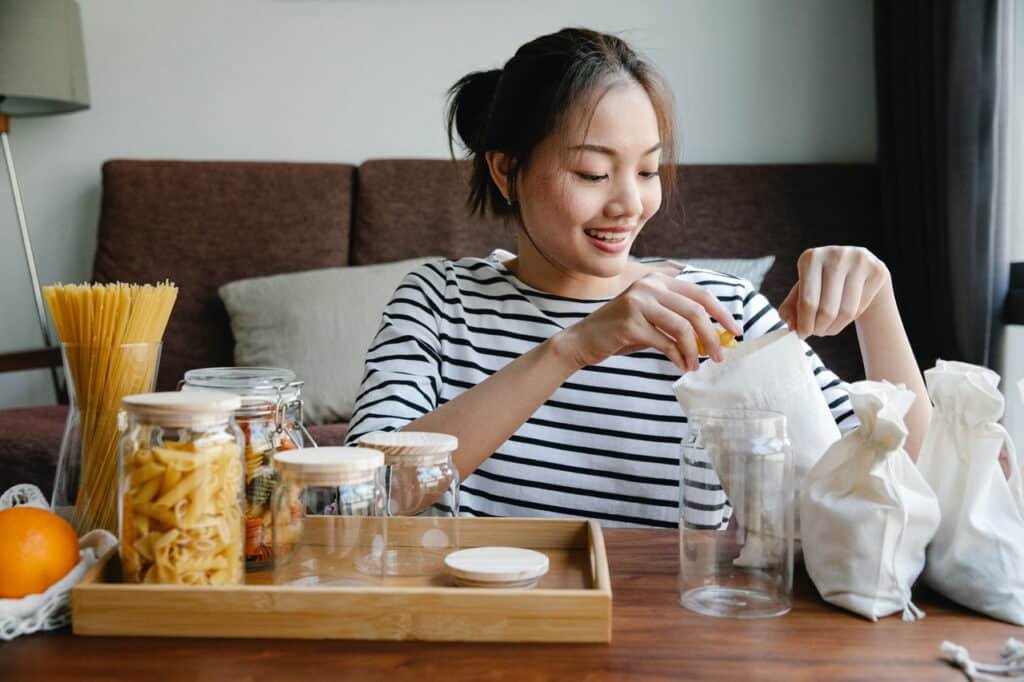
From the moment plastic was invented, everyone thought it was the best material for storing food and drinks. This is because plastic is a lightweight, inexpensive and easy to transport material. Only with the passage of time did people realize how much plastic is a polluting and harmful material for the environment. In order to change course of actions, in recent times many companies have begun to use other types of more sustainable materials, such as paper and glass. The latter in particular is a recyclable, resistant and elegant material, used above all to contain drinks, as we can see at https://www.vetroelite.com/en, or to store food, perfumes and much more.
The advantages of glass in food preservation
Glass is the best material for storing long-life foods, such as sauces and foods in oil. Thanks to glass containers, these foods are able to keep their nutritional valuable features and their flavor intact. Moreover, compared to other solutions, glass has more advantages and, not surprisingly, it is used in supermarkets to offer food to consumers. In short, the advantages of glass are versatility, sustainability, impermeability, safety, healthiness, resistance to corrosion, the high quality of the material and its aesthetic elegance.
As for versatility, glass can be used in different ways: for instance for serving meals, for storing food and drinks in the refrigerator, for cooking. Glass bottles give an elegant look to any table, because they can be simple but also elegant at the same time. Moreover, they can be refilled continuously. The glass can also be customized with drawings or writings, in order to make a bottle unique and original.
Another thing to consider, which makes glass an important material, is the fact that it is respectful of the environment because it can be easily recycled to produce other glass objects. This material resists high temperatures and is not contaminated by external agents, keeping food safe. Its impermeability is also important: it is resistant to atmospheric agents, it is impermeable to gasses and oxygen, as well as being extremely hygienic.
Glass packaging can cost more than plastic, but it is a material that lasts over time because it is resistant and reusable, aesthetically beautiful and sustainable. Although the price is higher, the benefits are greater than with other materials. Glass bottles can become fine decor if placed on windows or shelves, it is also easy to store them because they don’t take too much space. You can find many types of designs for sale, for example bottles used to store oil will have a different appearance than the ones used for wine. Each design is different depending on its content, in order to accommodate its needs and boast its strengths.
The importance of glass quality
Since there is an ever-growing awareness of the well-being of the environment, many people have invested in glass both for their homes and for commercial activities. Despite the apparent advantages of plastic, glass is still the material of choice, especially when it comes to catering activities that have to deal with the preservation of drinks and food. Plastic, unlike glass, has many disadvantages, first of all the poor biodegradability which makes it considered a very polluting material. In addition to this, we must think of the toxicity that emanates from contact with heat and the alteration it causes to flavors.
Plastic is a material considered increasingly harmful to the environment, it is still used for some things, but over time it is impossible not to notice the various disadvantages. Compared to glass it is a cheaper solution but it is also less resistant: plastic containers have less life than a glass container, which can be reused. Moreover, if we leave a plastic container exposed to heat, it comes into contact with toxic substances and contaminates food.
Difference between glass and plastic
A plastic water bottle is much more polluting than a glass bottle. Once purchased, the latter can always be carried along and filled whenever needed. Plastic bottles, on the other hand, must be thrown in the trash and become waste, negatively affecting the planet since it takes many years to be disposed of. Although plastic can be recycled in some cases, the process used for recycling often releases toxic substances as polluting particles are emitted.
As for the glass recycling process, it has no environmental consequences. Glass is composed of the fusion of different crystalline substances that are easily disposed of. Depending on how the characteristics of the final product must be, substances such as dyes or metals are added.
In conclusion, glass ranks as the best material for long-lasting food and beverage preservation, both from a quality point of view and an environmental factor. The advice is to use it more in your home, to avoid disposable storage solutions and be more respectful towards the planet.
